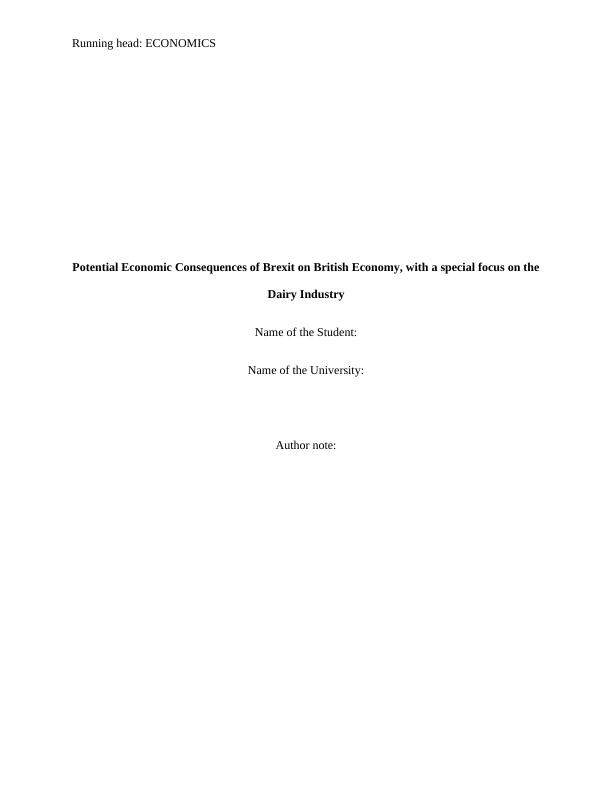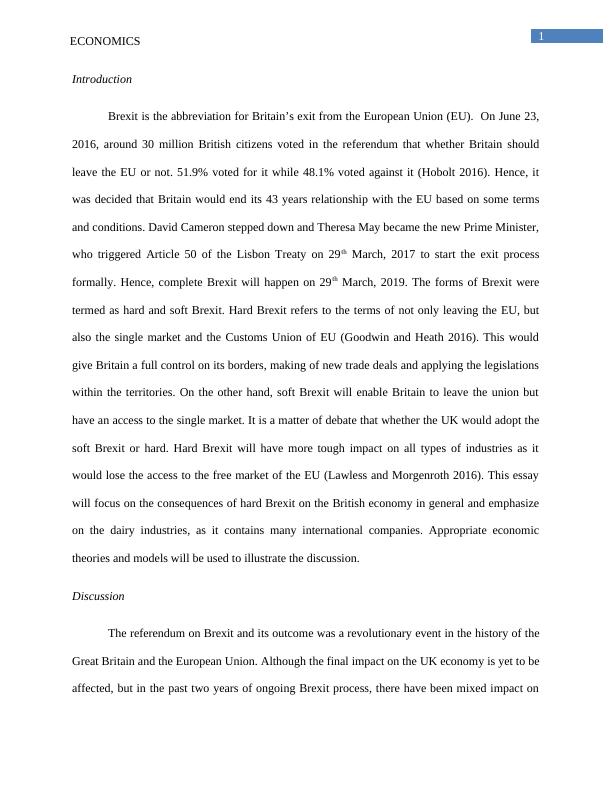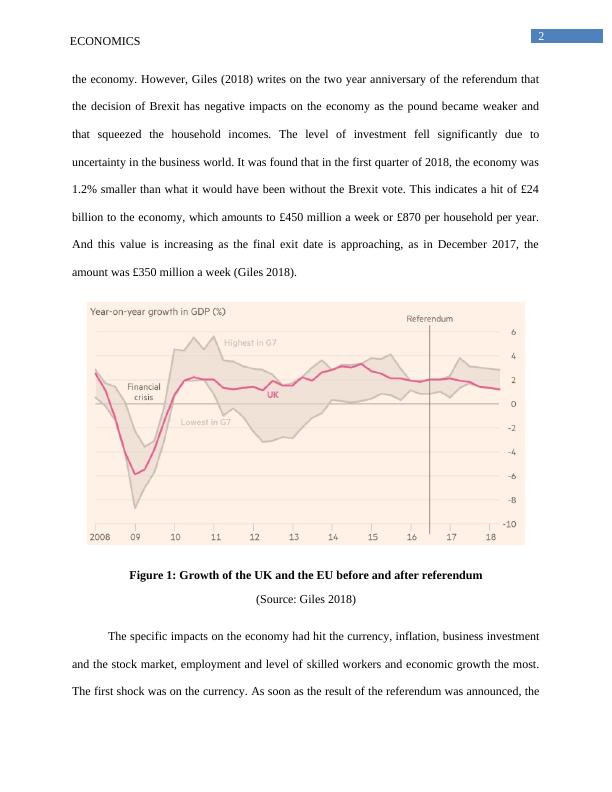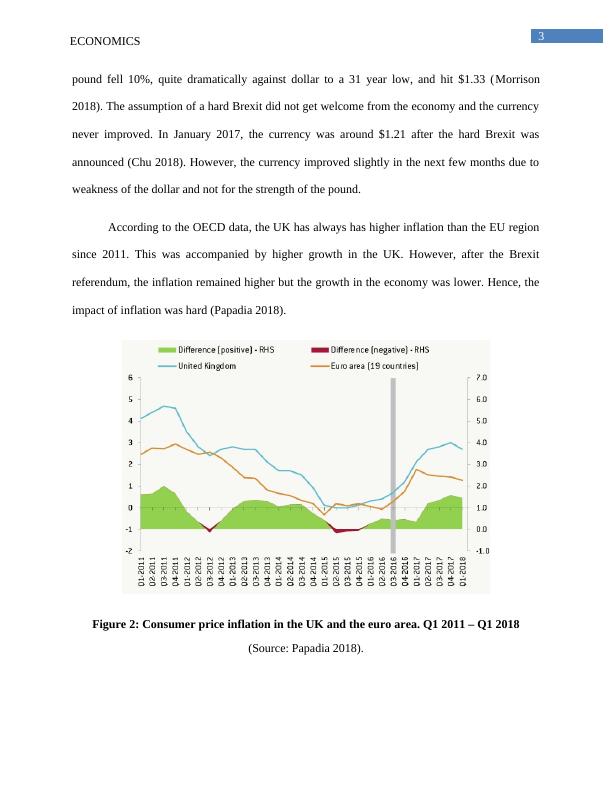Potential Economic Consequences of Brexit on British Economy, with a special focus on the Dairy Industry
Write an individual essay explaining the concept of own price elasticity in relation to the demand for airline tickets in the charter industry in the UK and discuss its usefulness for a UK-based company selling airline tickets to customers on vacation and business people attending business meetings in Europe.
Added on 2023-05-29
About This Document
This essay discusses the potential economic consequences of Brexit on the British economy, with a special focus on the dairy industry. It analyzes the impact of hard Brexit on the currency, inflation, business investment, and the stock market, employment, and level of skilled workers and economic growth. It also uses the theory of demand and supply to illustrate the impact of hard Brexit on the dairy industry.
Potential Economic Consequences of Brexit on British Economy, with a special focus on the Dairy Industry
Write an individual essay explaining the concept of own price elasticity in relation to the demand for airline tickets in the charter industry in the UK and discuss its usefulness for a UK-based company selling airline tickets to customers on vacation and business people attending business meetings in Europe.
Added on 2023-05-29
End of preview
Want to access all the pages? Upload your documents or become a member.




